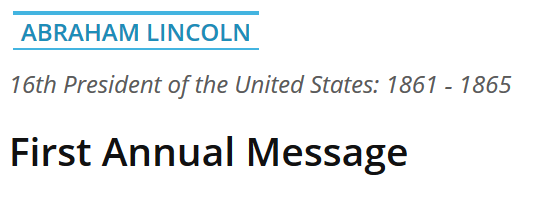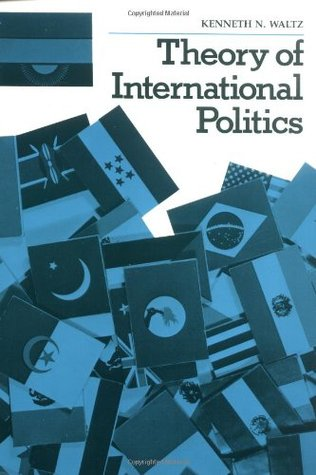
The Emancipation Proclamation is a crucial document, not least of all because it ensured the Union could win the American Civil War.
[A #JuneTeenth2021 Thread]
[A #JuneTeenth2021 Thread]

The American Civil War was not solely an "internal affair".
Throughout the early years of the war, Lincoln's administration feared intervention by the Europeans, notably the British.
tandfonline.com/doi/abs/10.108…
Throughout the early years of the war, Lincoln's administration feared intervention by the Europeans, notably the British.
tandfonline.com/doi/abs/10.108…
As Lincoln remarked in his first State of the Union: "[A nation] which endures factious domestic divisions is exposed to disrespect abroad, and one party, if not both is sure sooner or later to invoke foreign intervention.”
presidency.ucsb.edu/documents/firs…
presidency.ucsb.edu/documents/firs…

The fear was that the British, highly reliant on Southern Cotton and seeing an opportunity to weaken a potential rival, would recognize the Southern Confederacy and then lend support.
@DrAmandaForeman lays out this argument well.
amazon.com/dp/B004J4WN2G/…
@DrAmandaForeman lays out this argument well.
amazon.com/dp/B004J4WN2G/…
One factor seemed to be giving the British pause: the Confederacy was clearly fighting to keep the right to run a slave-based agrarian economy. 

Wait? Weren't the Southern states fighting for "states rights"? Sure, but the right to do what?
See, for example, South Carolina's declaration of secession
avalon.law.yale.edu/19th_century/c…
See, for example, South Carolina's declaration of secession
avalon.law.yale.edu/19th_century/c…

This concerned the British government because the Royal Navy had been leading the way in banning the global slave trade
cambridge.org/core/journals/…
cambridge.org/core/journals/…
Further contributing to this concern was the Union's position on slavery early in the war: the war WAS NOT about slavery.
As Lincoln had remarked in August 1862: "If I could save the Union without freeing any slaves, I would do it."
abrahamlincolnonline.org/lincoln/speech…
As Lincoln had remarked in August 1862: "If I could save the Union without freeing any slaves, I would do it."
abrahamlincolnonline.org/lincoln/speech…
While the British had refrained from recognition up to that point, it was still on the table. After all, Lord Palmerston was Prime Minister. 

Recall that he is famous for offering the oft-quoted realist remark: "We have no eternal allies, and we have no perpetual enemies. Our interests are eternal and perpetual, and those interests it is our duty to follow."
Talk about #KeepRealismReal!
api.parliament.uk/historic-hansa…
Talk about #KeepRealismReal!
api.parliament.uk/historic-hansa…
In other words, while recognizing a slave state was not ideal, Britain had economic interests. I mean, Britain had recognized the United States itself!
As Palmerston stated to August Belmont, a prominent American financier and diplomatic liaison, in July 1861: ``we do not like slavery, but we want cotton, and we dislike very much your Morrill tariff’’ 

Heading into the fall of 1862, it seemed that recognition might come. This was largely due to Confederate battlefield success. 

Russell responded how it did seem the time was coming for the British to step in to mediate a separation: 

Palmerston & Russell agreed that the mediation & recognition should be done jointly with the other European powers because " the Yankees would probably not seek a quarrel with us alone, and would not like one against a European Confederation.’’
Love Palmerston's use of "Yankee"!
Love Palmerston's use of "Yankee"!
But they wanted to wait for another Union defeat...and one appeared to be on its way just north of Washington D.C.
As Palmerston wrote to Russell
As Palmerston wrote to Russell

Wait, that's the letter in Palmerston's indecipherable handwriting (h/t @UkNatArchives). Here's what he wrote: 

As it turns out, Lincoln himself was thinking along similar lines. He had determined that issuing a preliminary emancipation proclamation could help weaken the Confederate cause, especially internationally.
amazon.com/Liberal-Peace-…
amazon.com/Liberal-Peace-…
But Lincoln did not want to issue it from a position of weakness. He wanted a battlefield victory. James McPherson wrote about this in his "The Battle Cry of Freedom"
amazon.com/dp/B002NXOQLQ/…
amazon.com/dp/B002NXOQLQ/…
Hence, Lincoln got a "good enough" victory out of Antietam. If nothing else, it revealed the deep weaknesses in the Confederate forces (i.e. Lee's army should have been captured -- and everyone, including the Europeans, knew it) 

The Proclamation did not fully end the threat of recognition, a point emphasized by historian Howard Jones
amazon.com/dp/B075TMWPP7/…
amazon.com/dp/B075TMWPP7/…
But, as @BrentJSteele1 emphasized, it changed the meaning of (or at least the foreign perception of) the war from "Northern Aggression" to "liberation"
amazon.com/Ontological-Se…
amazon.com/Ontological-Se…
From that point onward, it would be difficult for the Europeans to recognize the South. No recognition, no alliance, no military aid sufficient to tip the balance of power.
amazon.com/Burden-Confede…
amazon.com/Burden-Confede…
In other words, making the American Civil War "the Cause of All Nations" meant the Confederate cause was lost.
amazon.com/dp/B06XKBXBLD/…
amazon.com/dp/B06XKBXBLD/…
As we commemorate the end of slavery on #Juneteenth, keep in mind that slavery's end was critical to ensuring that the "United States" continued.
[END]
[END]
Addendum 1: The argument that Britain should have intervened to stop the rise of a great power rival is most forcibly given by "offensive realist" accounts, such by JJM (which cites some of the older work on the diplomacy of the ACW)
amazon.com/dp/B0022Q8CVY/…
amazon.com/dp/B0022Q8CVY/…
Addendum 2: For more on British Dependence on Southern Cotton (and the perception in the South that this would led to intervention), see the classic work "King Cotton Diplomacy"
amazon.com/King-Cotton-Di…
amazon.com/King-Cotton-Di…
Addendum 3: For more on the role of ideology in explaining why neither a desire to break up a rival nor obtain cotton led to British intervention, see Richard Little's @SecStudies_Jrnl piece.
tandfonline.com/doi/abs/10.108…
tandfonline.com/doi/abs/10.108…
Addendum 4: For the broader context of Britain's decision to not intervene and how this was part of a broader accommodative policy towards America's rise throughout the 19th and early 20th century, see A.G. Hopkins *MASSIVE HISTORICAL TEXT*...
amazon.com/dp/B0753SH9Z3/…
amazon.com/dp/B0753SH9Z3/…
... and @KoriSchake's more theoretically guided and policy relevant account (i.e. this peaceful accommodation is more the exception than the rule)
hup.harvard.edu/catalog.php?is…
hup.harvard.edu/catalog.php?is…
• • •
Missing some Tweet in this thread? You can try to
force a refresh











